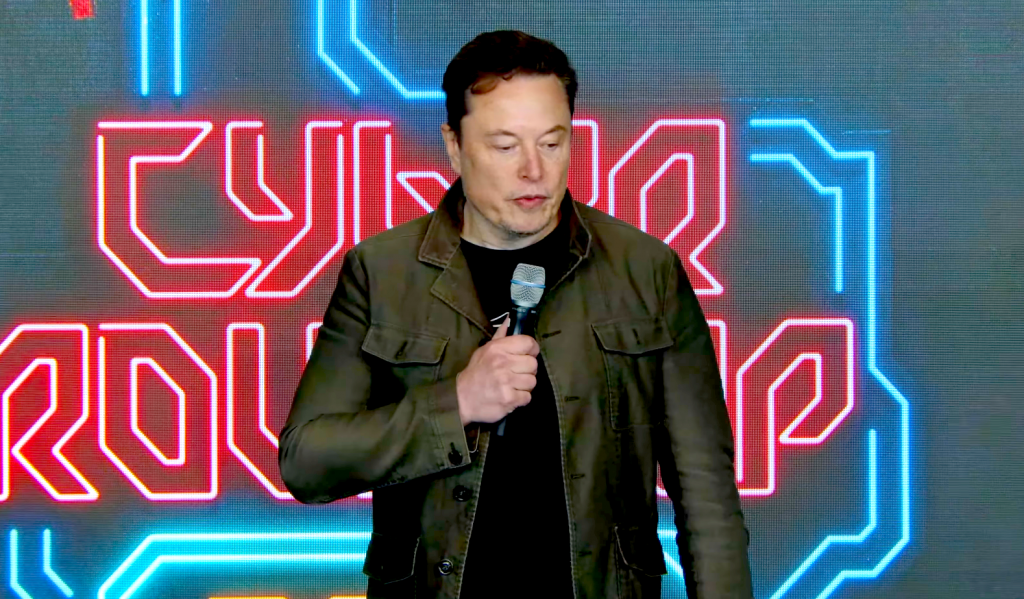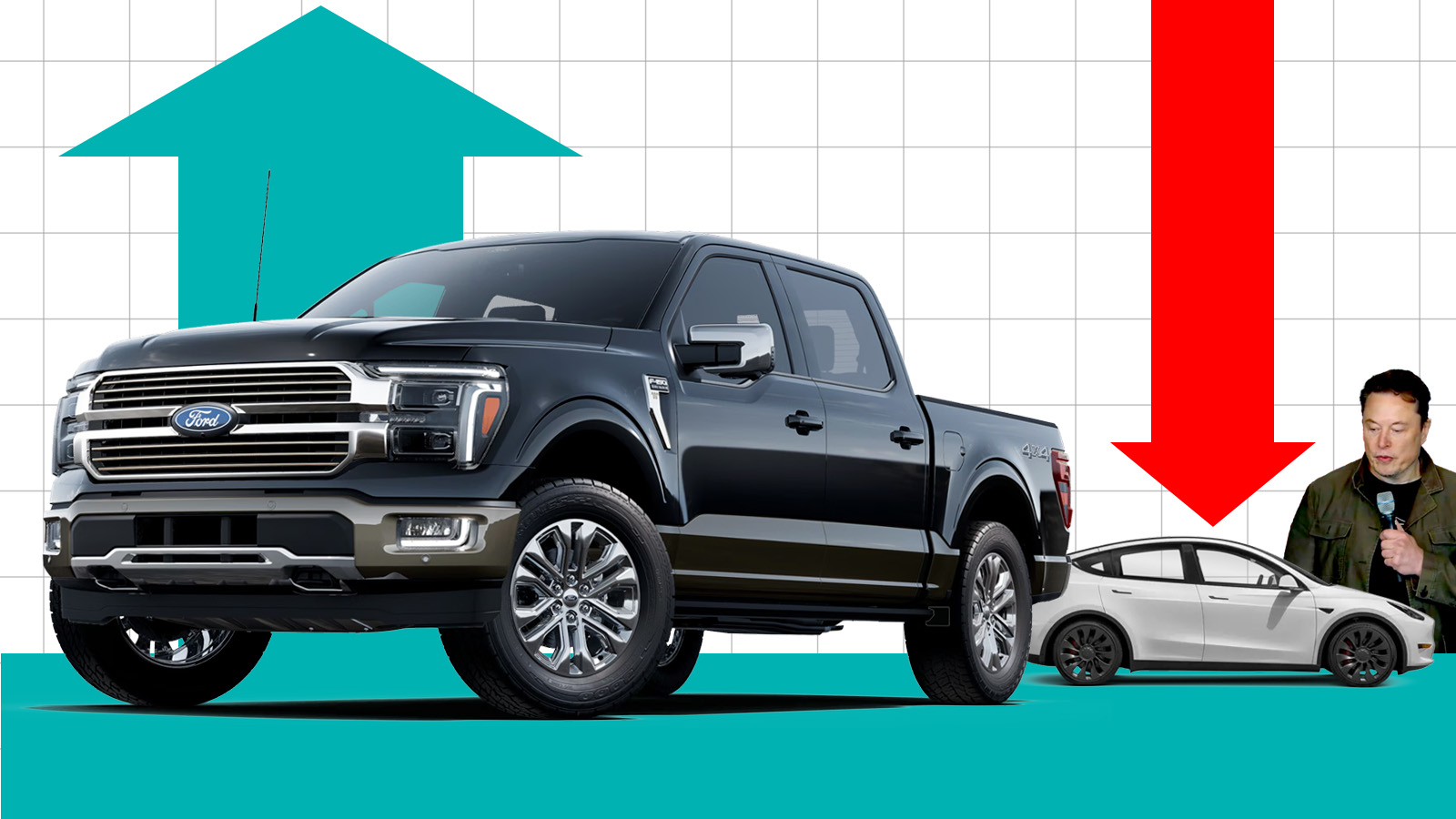Tesla owners are often referred to as part of a cult thanks to their unwavering support for the brand, its cars, and most importantly, its CEO, Elon Musk. The data backs that up. For years, Tesla owners were far more likely to buy another Tesla than to switch to another brand, often topping automaker loyalty charts. But no longer.
An S&P Global Mobility study analyzed by Automotive News shows Tesla’s brand loyalty has fallen off a cliff, tumbling over nine percentage points from the second quarter of 2024 to the same time period this year. Previously, 67.5 percent of Tesla buyers bought another Tesla, which made it the brand with the most loyal owners. Now, that number is just 58.1 percent, around the same as General Motors, but behind Ford, which now sits at 59.6 percent.
Hmm, what could’ve possibly happened in the latter half of 2024 and the first half of 2025 to cause this sudden attitude shift in Tesla’s ownership base? Oh, right: Musk got heavily involved in politics. Reuters got a look at similar data and came to the same conclusion I did:
That industry-leading brand loyalty rate started to nosedive in July, that data showed, when Musk endorsed Trump following an assassination attempt in Pennsylvania on the Republican nominee.
The rate bottomed out at 49.9% last March, just below the industry average, after Musk launched Trump’s budget-slashing Department of Government Efficiency in January and started firing thousands of government workers.
[…]
S&P analyst Tom Libby called it “unprecedented” to see the runaway leader in customer loyalty fall so quickly to industry-average levels. “I’ve never seen this rapid of a decline in such a short period of time,” he said.

It’s not just Elon’s actions that are causing people to turn away from the brand. It’s the cars themselves. Tesla’s lineup is dated and priced poorly for market conditions. That worked for the last decade, simply because the brand didn’t have many competitors, and the options that did exist were outclassed by Tesla’s battery tech and charging infrastructure. But times change. From Automotive News:
Loren McDonald, chief analyst at EV data analytics firm Paren, is trading in his Model Y for another brand this month after owning three Teslas. McDonald is leaning toward the Audi Q6 E-tron, a battery-electric crossover with a more luxurious interior and a cushy ride.
When he bought his first Tesla in 2016, a Model S sedan, there wasn’t anything like it on the market. But rivals are catching up.
“There’s so many good options today, and it’s only going to get better,” McDonald said.
[…]
“For a long time, Tesla was in a unique position,” said Karl Brauer, executive analyst at iSeeCars. “They were the only ones offering premium electric vehicles.”
Brauer said he remembered several years ago when BMW “was getting slaughtered” by Tesla conquests. BMW fought back and now makes compelling electric versions of its top models, he said.
Tesla’s falling market share coincides with its collapsing brand loyalty. Despite the EV market growing by 14 percent in August, Tesla sales only went up by 3.1 percent. The company’s market share of EVs is 38 percent—still huge, but a far cry from the 46.2-percent share it held in the second quarter of 2025.
The company’s aging lineup even has people switching back to internal combustion power, according to the S&P Mobility study. It makes sense—with no large SUV and no truly cheap vehicle in Tesla’s lineup, it’s impossible to keep every owner in the fold as their lives evolve (having children, different living situations, different jobs, etc.). From Automotive News:
“If they want a big vehicle, they may have to go domestic and gasoline,” Libby said. Tesla’s biggest crossover, the Model X, starts at $101,630 with shipping and is smaller than traditional SUVs. The automaker’s wildly styled Cybertruck pickup starts at $72,235 with shipping.
While 70 percent of Tesla owners chose an EV as their next car in the first half this year, 30 percent switched fuel types. “It’s surprising to see the number that are going to gas,” Libby said.

Tesla is attempting to counter this downturn with a cheaper Model Y set to arrive later this year. The brand is also betting heavily on its Cybercab two-door Robotaxi in 2026 to jumpstart its autonomous ride-hailing business. Whether either of those things will pan out is another story. Musk has a history of overpromising and underdelivering on product and timelines.
The company’s board of directors seems to have faith. Last week, it put forth a proposal for Musk’s pay that could, should he complete a set of seemingly impossible tasks, allow the South African CEO to become the world’s first trillionaire. So far, the numbers aren’t looking good.
Top graphic images: Ford; Tesla









Saying that Elon “got involved in politics” is borderline sane-washing. The back to back straight arm salutes are representing more than mere politics. I can’t be the only person who not only won’t wear a hooded sheet, but also won’t shop at the store of a man who does.
Oh, you have no problem with Democrat politicians doing the same salute, don’t you? Typical leftist, liberal, woke, Democrat attitude…
I’m fairly talented at name calling if we want to go there…
You’re smart enough to know the actual differences in context and movement and I’m disappointed that you think this disingenuous display is going to change anyone’s mind.
I’m sorry that you need to run on anger and hatred against a nebulous collection of right-wing scare words but you’ll be happier if you stop raging.
His salute is emphasized by stopping his speech, and saluting to the audience in front and behind him.
His is not a gesture to quiet a crowd or animate a broad sweeping statement as many politicians do when speaking to a large crowd. Others may show a still image that implies the same. But watch a video which explicitly provides the context for Musk’s salutes.
This starts at the salute moment referenced, within a 38 second video:
https://youtu.be/-VfYjPzj1Xw?si=ByduYiJpjfPkbk0X&t=18
In my life, I have owned a Subaru, a Ford, a Geo, a Chevy, an Oldsmobile, a VW, a Mitsubishi, a Hyundai, a Toyota, a Toyota, a Ford, a Mercedes, a Hyundai, a Hyundai, a Mercedes, and a Ford. Some of these cars were better than others, but all fit my needs and/or wants when I had them. I can’t say any were terrible, though some stand out as better than others. As you might guess, I have little or no brand loyalty, and I really don’t understand those who do.